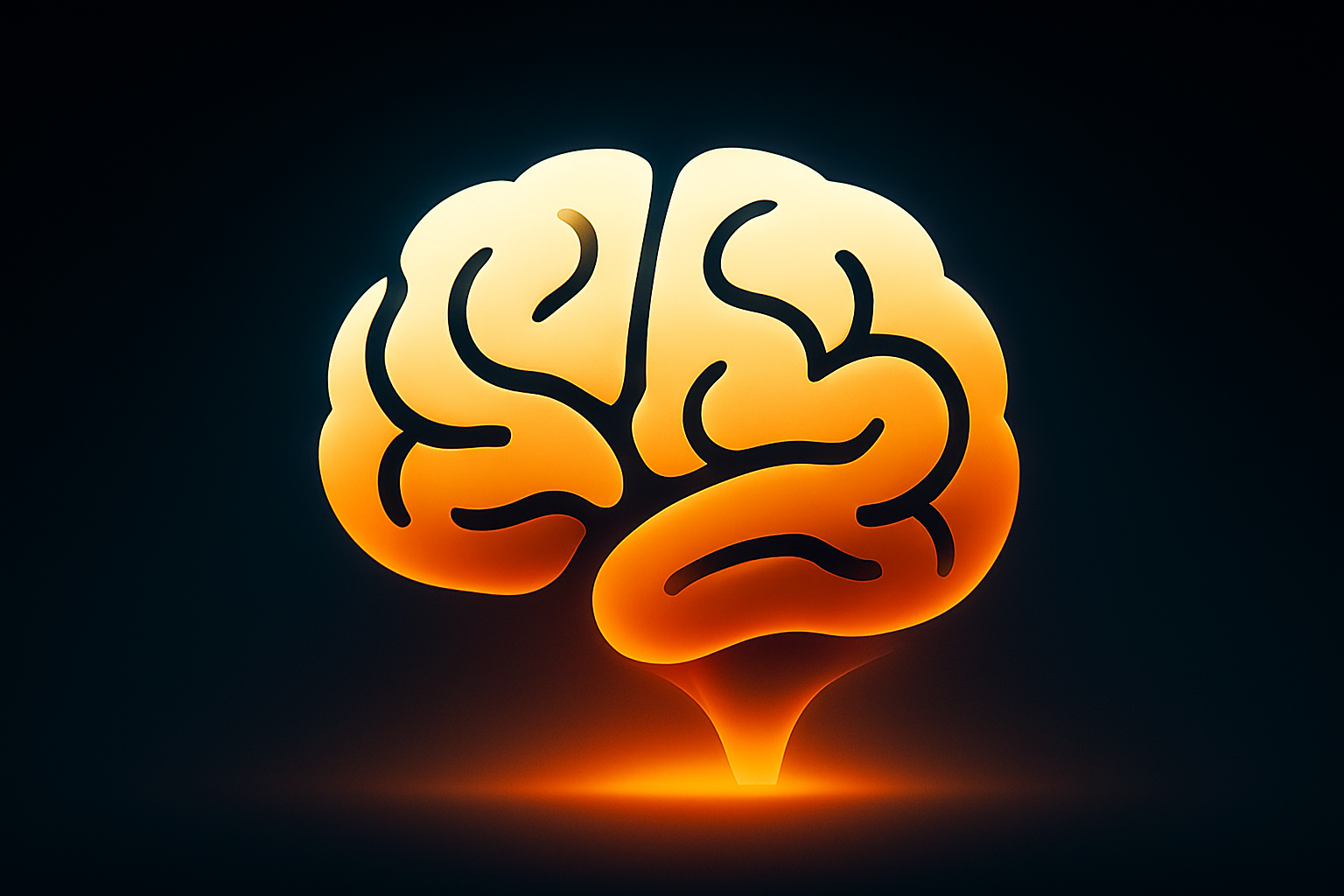What is General AI?
General AI, also known as Artificial General Intelligence (AGI), refers to AI systems capable of performing any intellectual task that a human can do. Unlike narrow AI designed for specific functions (like Siri or self-driving cars), General AI would possess versatility and adaptability across all domains of human intelligence.
Key characteristics of General AI include:
- Human-level cognitive function across all domains
- Autonomous learning and self-teaching capabilities
- Adaptability to new tasks without requiring reprogramming
- Problem-solving abilities that match or exceed human performance
In simple words: General AI is like a super-smart computer that can learn and do anything a human can, from writing a story to solving complex math problems.
What Does General AI Mean?
General AI represents a theoretical form of artificial intelligence with the ability to understand, learn, and apply knowledge across a wide range of tasks, mirroring human intellectual capabilities. It’s often called “strong AI” to distinguish it from “weak” or narrow AI, which is limited to specific applications.
While narrow AI excels at individual tasks like facial recognition or language translation, General AI would have the comprehensive intelligence to tackle any cognitive challenge a human could address.
What are General Purpose AI Models?
General purpose AI models are advanced systems, typically based on large language models (LLMs) like GPT-4, designed to perform a broad range of tasks. While not true AGI, these models represent stepping stones toward General AI:
- They can understand and generate human-like text
- They demonstrate reasoning capabilities across various domains
- They adapt to different contexts and tasks
- They show some ability to transfer knowledge between unrelated areas
Current general purpose models showcase impressive versatility but still fall short of true AGI’s adaptability and comprehensive intelligence.
What is General AI with Example?
Since true General AI doesn’t exist yet, we can look at fictional examples that illustrate what AGI might resemble:
- JARVIS from Iron Man: A highly intelligent assistant that can perform diverse tasks from managing technology to strategic planning
- The Matrix AI: A system capable of complex decision-making and learning across multiple domains
Some researchers suggest that advanced models like GPT-4, which can code, write, and solve problems across domains, might represent early, incomplete forms of AGI. However, this view remains controversial, with many experts arguing these systems still lack true general intelligence.
Are We Close to General AI?
The proximity to achieving General AI is a topic of intense debate in the AI community. As of May 2025:
- No true AGI systems exist that match human-level intelligence across all domains
- Some researchers argue that state-of-the-art LLMs show early signs of AGI-like capabilities
- Microsoft researchers claimed in 2023 that GPT-4 outperformed 99% of humans on creative thinking tests
- Critics contend that true AGI remains far off due to challenges in replicating human sensory perception and contextual understanding
A 2020 survey identified 72 active AGI research projects across 37 countries, indicating substantial global efforts toward achieving this goal.
How Close is General AI?
The answer depends largely on definitions and perspectives:
- Optimists: Some, like OpenAI’s Vahid Kazemi in 2024, claimed AGI might already exist in a limited form with models that perform “better than most humans at most tasks”
- Skeptics: Critics argue current models lack the depth and adaptability of true AGI
- Consensus: Most experts acknowledge significant progress but recognize major hurdles remain
The definition of “closeness” varies widely based on how researchers define AGI and what benchmarks they consider necessary for its achievement.
How Does General AI Work?
General AI would function by integrating multiple AI disciplines into a unified system capable of human-like cognition:
- Learning: Acquiring new knowledge and skills autonomously
- Reasoning: Solving problems logically across diverse contexts
- Adapting: Transferring skills from one domain to another without reprogramming
Unlike narrow AI, which relies on predefined algorithms, AGI would likely mimic human cognitive flexibility through:
- Neural network architectures of unprecedented scale and complexity
- Advanced reinforcement learning enabling autonomous skill acquisition
- Multimodal processing integrating text, vision, audio, and more
- Self-improvement mechanisms allowing the system to enhance its own capabilities
General AI would operate as a highly adaptable system, learning from diverse data sources and applying that knowledge to new challenges, much like a human brain.
How is General AI Used?
Since true General AI doesn’t exist yet, it isn’t currently used in real-world applications. However, if developed, AGI could transform virtually every industry:
Potential Applications:
- Healthcare: Diagnosing diseases, developing personalized treatments, and making medical breakthroughs
- Education: Creating tailored learning experiences adapted to individual student needs
- Scientific Research: Accelerating discoveries in fields from physics to climate science
- Technology: Designing innovative solutions and automating complex processes
- Environment: Analyzing complex climate data to address global challenges
General AI would theoretically serve as a universal tool across all sectors, handling any task requiring intelligence, from routine administrative work to groundbreaking scientific research.
Where is General AI Used?
As General AI is not yet realized, it is not used anywhere. However, research and development are active globally, with organizations like Google DeepMind, OpenAI, Anthropic, and many research institutions leading efforts to create AGI.
The current focus remains on developing and improving foundation models that may eventually lead to more generalized intelligence.
When Will General AI Happen?
Predictions for General AI’s arrival vary widely, reflecting significant uncertainty in the field:
Optimistic Predictions:
- Leopold Aschenbrenner (2024): AGI by 2027 is “strikingly plausible”
- Jensen Huang (2024): AI could pass human tests by 2029
- Demis Hassabis (2023): AGI within a decade or a few years
Moderate Predictions:
- 2012–2013 polls: 50% chance by 2040–2050, mean prediction of 2081
- Ray Kurzweil: 2029 for human-level intelligence, 2045 for surpassing it
Skeptical Views:
- Some experts believe AGI may never be achieved due to the complexity of human cognition
A noted bias exists where experts often predict AGI 15–25 years from their current time, suggesting timelines may shift as new advancements occur.
Will General AI Have Consciousness?
Whether General AI will have consciousness is a deeply debated philosophical question with no scientific consensus:
Different Perspectives:
- Pro-Consciousness View: Advanced AGI could eventually develop consciousness as it mimics human cognitive processes
- Skeptical View: Consciousness may require biological or non-computational elements that remain beyond AI’s reach
This question raises profound ethical issues about the potential rights and moral status of AGI systems. If AGI were to develop consciousness, it could fundamentally change how society views and interacts with these systems.
Challenges in Developing General AI
Achieving General AI faces significant hurdles that current AI approaches have yet to overcome:
- Sensory Perception: Current AI struggles with human-like perception, such as accurate color or sound recognition in varied environments
- Contextual Understanding: Replicating the human ability to understand nuanced contexts and implied meanings remains complex
- Adaptability: Transferring skills across completely unrelated tasks without specific training is still a major challenge
- Common Sense Reasoning: Building systems with intuitive understanding of how the world works
- Self-Awareness: Creating AI that can reflect on its own limitations and capabilities
Key Controversies
The field of General AI research is marked by several ongoing debates:
- Definition Disputes: Experts disagree on what precisely constitutes AGI, complicating assessments of progress
- Ethical Concerns: The potential for AGI to disrupt economies or pose existential risks fuels debate about development safeguards
- Claims of Progress: Assertions that models like GPT-4 represent early AGI are contentious, with critics arguing they lack true generality
Conclusion
General AI holds immense potential to reshape society, but as of May 2025, it remains a theoretical goal rather than a current reality. While advancements in AI research continue to push boundaries, significant challenges and debates persist about AGI’s feasibility, timeline, and implications.
The journey toward General AI involves not just technological innovation but also careful consideration of ethical frameworks and safety measures. As research progresses, the line between advanced narrow AI and true AGI may become increasingly blurred, requiring ongoing reassessment of what general intelligence truly means.
Whether General AI arrives in years or decades—or proves more elusive than anticipated—the pursuit itself continues to drive innovation across the AI landscape.
FAQs About General AI
What is the difference between AI and General AI?
AI (Artificial Intelligence) is a broad field encompassing any computer system that can perform tasks normally requiring human intelligence. General AI specifically refers to AI systems with human-equivalent versatility across all intellectual domains, unlike narrow AI systems designed for specific tasks.
Can General AI replace humans?
If developed, General AI could potentially automate many tasks currently performed by humans. However, complete replacement seems unlikely, as humans offer unique creativity, emotional intelligence, and ethical judgment that may remain valuable even with advanced AGI.
Is General AI dangerous?
The potential risks of General AI remain theoretical but include concerns about control problems, goal misalignment, and economic disruption. Many researchers emphasize the importance of AI safety research to ensure that AGI systems, if developed, would be aligned with human values.
What companies are working on General AI?
Leading organizations pursuing AGI development include OpenAI, Google DeepMind, Anthropic, Baidu, and numerous research institutions worldwide. Most take different approaches to the challenge of creating more general intelligence.
Is ChatGPT General AI?
No, ChatGPT and similar large language models are not General AI. While they demonstrate impressive capabilities in language understanding and generation, they remain narrow AI systems specialized for language tasks, lacking the comprehensive intelligence and adaptability that would define true AGI.
Sources
- Wikipedia: Artificial General Intelligence Overview
- Investopedia: Understanding Artificial General Intelligence
- Spiceworks: Challenges and Trends in General AI
- NOEMA: Debating AGI and Consciousness
- Interaction Design Foundation: Introduction to General AI
- TechTarget: Definition of Artificial General Intelligence
- IMD: Potential Impact of Artificial General Intelligence
- IBM: Examples of Artificial General Intelligence Applications
- Science News: Unclear Meaning of Artificial General Intelligence
- AIMultiple: Predictions for AGI and Singularity Timeline

